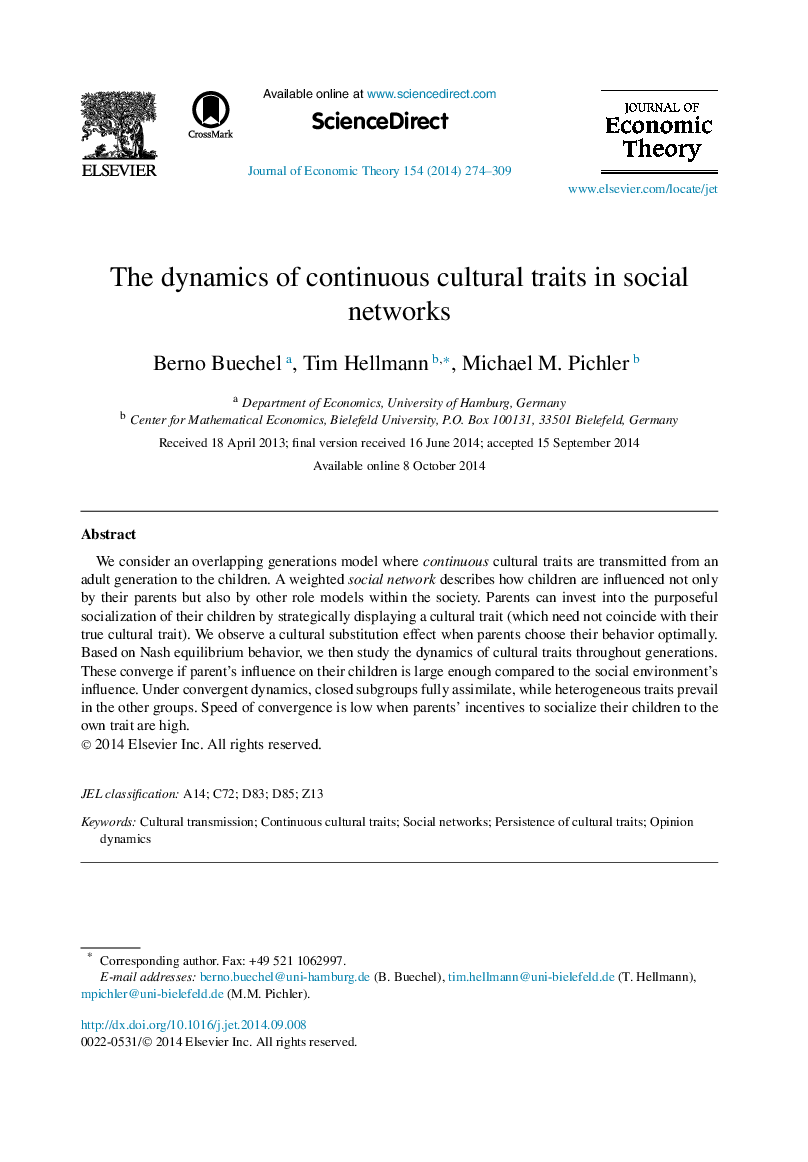| Article ID | Journal | Published Year | Pages | File Type |
|---|---|---|---|---|
| 956791 | Journal of Economic Theory | 2014 | 36 Pages |
Abstract
We consider an overlapping generations model where continuous cultural traits are transmitted from an adult generation to the children. A weighted social network describes how children are influenced not only by their parents but also by other role models within the society. Parents can invest into the purposeful socialization of their children by strategically displaying a cultural trait (which need not coincide with their true cultural trait). We observe a cultural substitution effect when parents choose their behavior optimally. Based on Nash equilibrium behavior, we then study the dynamics of cultural traits throughout generations. These converge if parent's influence on their children is large enough compared to the social environment's influence. Under convergent dynamics, closed subgroups fully assimilate, while heterogeneous traits prevail in the other groups. Speed of convergence is low when parents' incentives to socialize their children to the own trait are high.
Related Topics
Social Sciences and Humanities
Economics, Econometrics and Finance
Economics and Econometrics
Authors
Berno Buechel, Tim Hellmann, Michael M. Pichler,
